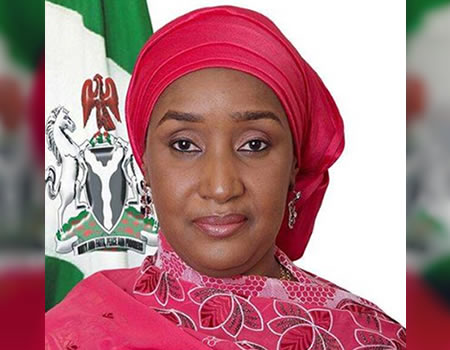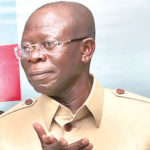The President of the Federal Republic of Nigeria, on the 21st of August 2019 during the swearing-in ceremony for the new ministers at the Council chambers in the Aso Rock announced a new Ministry of Humanitarian Affairs, Disaster Management and Social Development.
With the creation of this ministry, what does this mean for Nigeria and much more the North Eastern Nigeria that has been grossly affected by insurgency and other humanitarian crisis situation over the past 10 years? With the government’s effort towards rebuilding the North East, returning the displaced persons back to their natural settlement and the need to manage emerging natural disasters and victims of such disasters, it is leaving the new Ministry of Humanitarian Affairs with so much responsibility as it is ministry set to impact the people directly.
Considering the enormous task ahead of Sadiya Umar Farouq, the Minister responsible for the leadership of that ministry, constituting the core team she would work with and establishing their presence strongly for direct and immediate impact across the states in Nigeria could be challenging but with her experience as the immediate past federal commissioner, National Commission for Refugees, Migrants and Internally Displaced Person and possible synergy with the agency, her duties and responsibilities of the ministry could be well cut out for her.
At this point, it is suggestive to say that she would be working and supervising the activities of the National Emergency Management Agency (NEMA). Sadiya’s previous efforts at the National Commission for Refugees, Migrants and Internally Displaced Persons since her appointment in September 2016 can’t be overlooked as that might have earned her the trust in the President’s heart to put her in such an important ministry. This should go on to inspire her to work effectively with all relevant agencies for the effective operation of the new ministry.
Towards rebuilding the North East, President Muhammadu Buhari encouraged the World Bank in partnership with the European Union, philanthropists and other foreign organizations interested in rebuilding the North East to be more committed to erecting structures and physical presence in those areas to aid the smooth and effective returning of displaced persons to their settlements. Rather than giving out cash and other monetary gifts which over time has been reported that the displaced persons and supposed beneficiaries of humanitarian crisis and disaster issues often find it difficult to receive these aids and donations from individuals and organizations because of some atrocities committed by those responsible for the management of those resources such as food, water and clothing.
Things are sometimes easy to destroy than to rebuild, this is the current situation of the North East in Nigeria. Rebuilding the North East remains a huge project to be completed but it is possible with the efforts of the government, the people and international organizations committed to making this happen.
The creation of a ministry to take care of humanitarian affairs, disaster management and social development has thus made the pathway for the rebuilding of the North-East much more visible as there would be more accountability and responsibility for actors and non-actors towards humanitarian issues in Nigeria. This suggests that the ministry would present a budget of its own towards ensuring effective financial responsibility and accountability towards humanitarian affairs. However, with the creation of the ministry for humanitarian affairs, disaster management and social development, more focus and attention would be devoted to humanitarian affairs and disaster management as these are peculiar and important issues that affect the people directly. So what happens to focus on social development? Interestingly, if proper and effective activities are channelled towards humanitarian affairs and disaster management, it would, in turn, translate towards social development at all levels. This then leaves the ministry with a huge responsibility of impact and presence across all states and not just the northeastern part of Nigeria.
It is, therefore, necessary for the Federal Government to further acknowledge the humanitarian issues in different parts of Nigeria and the possible human and natural disasters tendencies in the country with issues such as global warming, climate changes and protection of the environment being at the front burner. Finance should not be a challenge to this ministry as well as accountability for it should not be overlooked even as Nigeria strives to rebuild the North-East and be prompt even in its attendance to humanitarian crisis wherever it spurs up.
• Gbenga writes from Ilorin, Kwara State, via adedoyinsegun@gmail.com
WATCH TOP VIDEOS FROM NIGERIAN TRIBUNE TV
- Relationship Hangout: Public vs Private Proposals – Which Truly Wins in Love?
- “No” Is a Complete Sentence: Why You Should Stop Feeling Guilty
- Relationship Hangout: Friendship Talk 2025 – How to Be a Good Friend & Big Questions on Friendship
- Police Overpower Armed Robbers in Ibadan After Fierce Struggle






